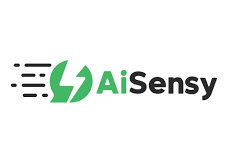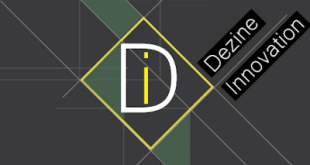The hybrid cloud model has emerged as a pivotal strategy for businesses aiming to optimize their IT infrastructure, offering an unparalleled blend of flexibility, scalability, and cost-efficiency. With the integration of on-premises data centers and diverse cloud services, organizations can harness the power of this model to not only optimize their operations but also fortify their defenses against emerging threats. As we look to the future, enhancing security efficiency within hybrid cloud frameworks is crucial to meeting the challenges that lie ahead.
The Rise of Hybrid Cloud Adoption
Enterprise decision-makers increasingly choose hybrid cloud as their preferred operating model due to its significant value to businesses. According to a recent report by Flexera, 72% of enterprises have embraced a hybrid cloud strategy, indicating a significant shift towards this model as businesses seek to balance workload distribution and resource management effectively. Hybrid cloud exists in various forms, tailored to each enterprise’s needs, and enhances flexibility and responsiveness. This, in turn, improves the organization’s ability to derive meaningful insights from data and explore new growth opportunities.
According to an HPE survey, organizations that operate using both on-premises and private cloud infrastructures reported the highest levels of success at controlling and harnessing data instantly, with an overall 51% success rate. Additionally, hybrid cloud facilitates the incorporation of multi-generational IT, addresses security and redundancy issues, and helps meet compliance standards.
Security: The Cornerstone of Hybrid Cloud
While the hybrid cloud offers numerous advantages, it also presents unique security challenges. The complexity of managing multiple environments can create vulnerabilities if not properly addressed. A study by Gartner predicts that by 2025, 99% of cloud security failures will be the customer’s fault, highlighting the importance of robust security practices.
To mitigate risks, companies are increasingly investing in advanced security measures tailored to hybrid environments. This includes implementing Zero Trust architectures, enhancing encryption protocols, and leveraging AI-driven threat detection systems. These technologies are designed to provide comprehensive protection across all layers of the hybrid cloud infrastructure.
Enhancing Security Efficiency
Improving security efficiency in hybrid cloud environments is essential for protecting sensitive data and ensuring business continuity. Here are some strategies that organizations can adopt:
Unified Security Management: Integrating security tools and protocols across all cloud platforms ensures consistent protection and simplifies management. Solutions such as security information and event management (SIEM) systems can provide real-time monitoring and analytics.
Automated Compliance: Regulatory compliance is a critical aspect of cloud security. Automation tools can help organizations maintain compliance by continuously monitoring and enforcing policies, reducing the risk of human error.
Proactive Threat Intelligence: Leveraging threat intelligence platforms can enhance an organization’s ability to predict and prevent cyberattacks. These platforms analyze vast amounts of data to identify patterns and anticipate potential threats.
Zero Trust Security Framework: The Zero Trust model, which operates on the principle of “never trust, always verify,” is particularly effective in hybrid cloud environments. This framework ensures that no user, device, or application is trusted by default, reducing the risk of unauthorized access and data breaches.
Employee Training and Awareness: Human error remains a significant security risk. Regular training programs can equip employees with the knowledge and skills needed to recognize and respond to security threats effectively.
Looking Ahead
The hybrid cloud model is set to play an increasingly vital role in the future of IT infrastructure. As businesses continue to navigate the complexities of digital transformation, the ability to secure hybrid environments efficiently will be paramount. By adopting a proactive and integrated approach to security, organizations can not only safeguard their assets but also drive innovation and growth in an ever-changing technological landscape.
As the hybrid cloud continues to evolve, staying ahead of security challenges will require ongoing vigilance and adaptation. Embracing new technologies, fostering a culture of security, and prioritizing continuous improvement will be key to reinforcing security efficiency for tomorrow’s challenges.
Rajesh Thadhani
Vice President – Digital Transformation & Services
Crayon Software Experts India
 Newspatrolling.com News cum Content Syndication Portal Online
Newspatrolling.com News cum Content Syndication Portal Online






